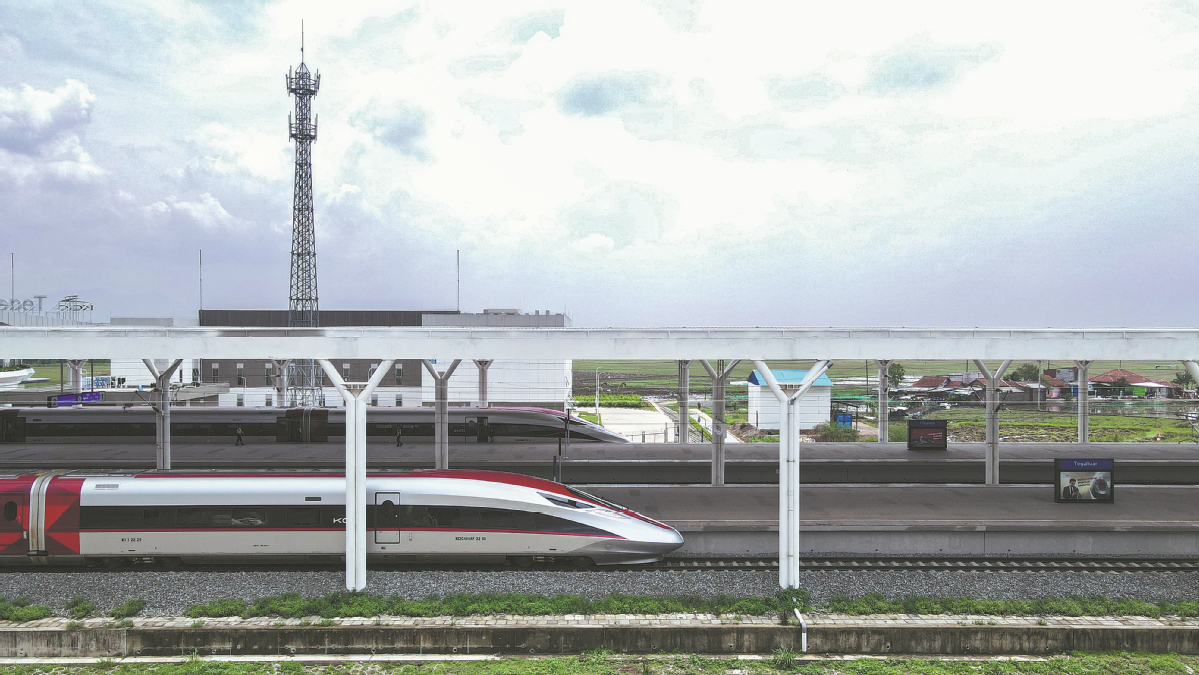Country presses the accelerator on rail development
Strengthened international cooperation sees numerous projects launched


Last year was a fruitful one for China's expertise in building railway networks, which gained wider recognition from the international community.
In April, passenger service began on the China-Laos Railway. As of Dec 5, the cross-border link had handled more than 100,000 trips by travelers from over 70 countries.
In October, the high-profile Jakarta-Bandung High-Speed Railway commenced operation in Indonesia — the first such line in Southeast Asia. The project was the first overseas venture to rely wholly on Chinese railway systems, technology and components.
Seven months earlier, the Chinese-built Belgrade-Novi Sad section of the Serbia-Hungary Railway marked the first anniversary of its operation. Nearly 3 million passenger trips were made on the line in its first year.
Ju Guojiang, president of China Railway International, a subsidiary of China State Railway Group, which supervises overseas railway projects, said, "The biggest advantage of Chinese rail going global is that we have a comprehensive system that includes all the elements needed and the entire industry chain."
"This means that China can offer a comprehensive plan, including surveying, designing and construction, as well as providing all supplies and materials. We can also offer operating plans following the opening of a railway," Ju added.
For example, when there was a shortage of a particular type of material before the Jakarta-Bandung High-Speed Railway opened, an urgent shipment from China solved the problem, Ju said.
"If a similar problem occurred in Europe, it may take six months to a year to tackle it. Thanks to China's strong industrial capability to solve comprehensive problems, we can resolve such difficulties in just one month," he added.
China State Railway Group said the nation's rail sector has strengthened international cooperation by insisting on adhering to the principles of maintaining high standards and sustainability while benefiting the people. The sector also focuses on assisting the Belt and Road Initiative and sharing the experiences of railway construction and operation globally.
























